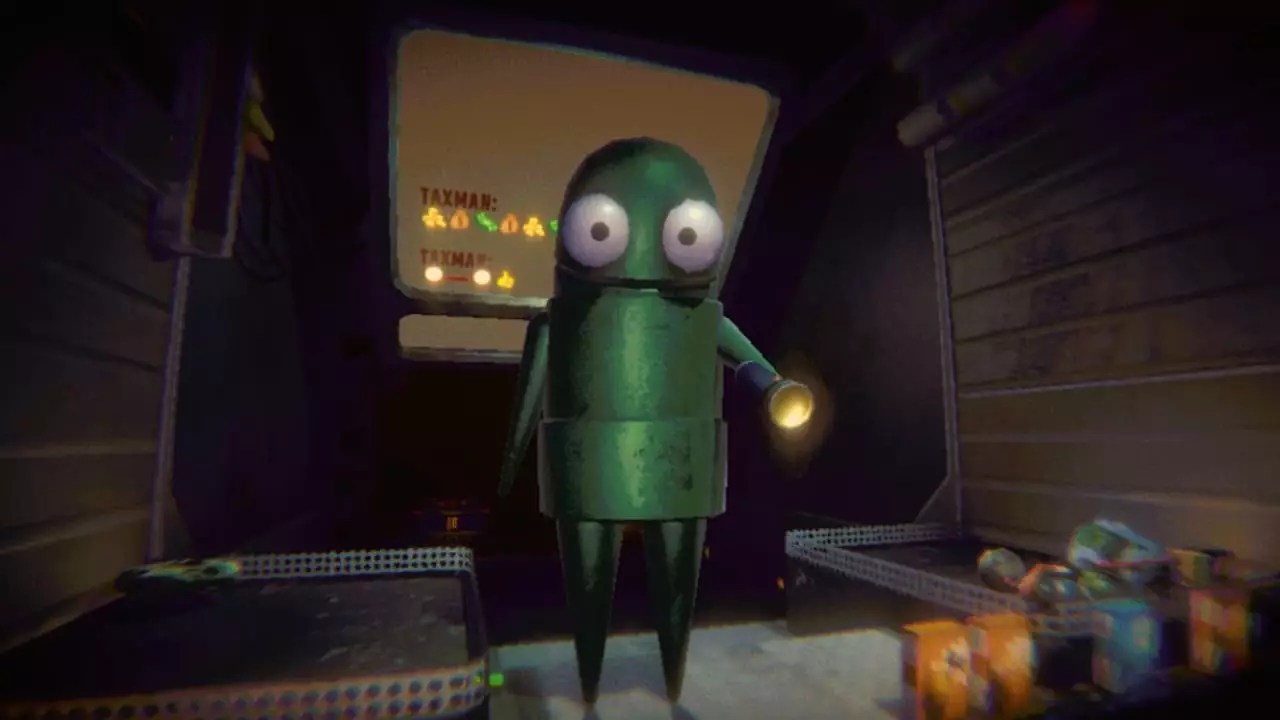In today’s digital age, the line between creativity and imitation is thinner than ever, especially within the vibrant gaming community. Horror enthusiasts on PC have been firmly invested in a striking new title called R.E.P.O., developed by the adept Swedish studio, Semiwork. Released in early 2025, this online cooperative game has captivated players who join forces to unravel the mysteries of a long-forgotten civilization. However, it brings to light a darker issue that plagues the industry: the proliferation of counterfeit games masquerading as genuine products. As the gaming landscape grows, so does the prevalence of fraud, exemplified by a recent incident involving a spurious title, “REPO Horror,” that is stealing both headlines and wallets.
The Rise of R.E.P.O. and the Threat of Imitation
R.E.P.O. has rightfully garnered attention for its intense atmosphere, engaging gameplay mechanics, and the need for players to balance tension with humor. This duality is something that a thriving horror genre thrives on, creating a shared experience that is both thrilling and chaotic. Yet, as its popularity surged, so did the risk of imitation. An alarming report from a Reddit user revealed their unfortunate encounter with “REPO Horror” on the Nintendo eShop, a game described as a “total fake.” The user’s intent was straightforward: seeking a connection to the acclaimed R.E.P.O. Instead, they discovered a game that felt intrinsically wrong—less polished, devoid of the captivating spirit that made the original a hit.
The counterfeit not only misrepresented itself visually, mimicking logos, screenshots, and design, but also missed the hallmark quality that sets serious developers apart from opportunists seeking to cash in on the success of others.
A Symptom of a Larger Problem
The alarming rise of deceptive gaming products is not an isolated incident nor a mere inconvenience. This phenomenon indicates a troubling trend within the gaming industry. Much like the case of “The Backrooms 1998” which also faced a similar fate with counterfeit copies appearing on the Switch earlier this year, the continual emergence of fake games directly threatens the integrity of creative innovation. The con artist behind “REPO Horror” has been identified as BoggySoft—none other than the same questionable publisher behind “Only Up!”, which shares its name with another platform game that incited outrage upon its release.
These fraudulent titles typically exploit the enthusiasm of fans searching for quality, only to deliver underwhelming products that serve as a vivid reminder of the substantial risks present in the gaming marketplace. Consumers seeking to support indie developers often become victims of misleading labels, paving the way for disillusionment and distrust in this vibrant community.
The Consumer’s Dilemma and Developer’s Plight
As gamers, we invest not only our time but also our financial resources into experiences that promise to be genuine. No one enters a purchase assuming they will receive a shoddy imitation rather than the masterpiece that so many others rave about. The fallout is two-fold: consumers lose out on their money and genuine developers face the repercussions—an erosion of trust that discourages potential players from taking risks on lesser-known titles. With platforms like the Nintendo eShop allowing dubious titles to slip through the cracks, it’s an unsettling reality for those who champion creativity and originality.
Fortuitously, this Reddit user proactively contacted Nintendo Support, urging them to escalate the matter. While this proactive move could lead to a crackdown on such malpractices, it emphasizes an essential aspect of the gaming community: collective vigilance is paramount. The engagement of informed consumers may serve as the catalyst needed to address these fraudulent practices effectively, hence protecting both the integrity of the medium and the livelihoods of passionate developers.
The Dark Future of Gaming
BoggySoft’s audacity even extends to optimistic claims regarding a Switch 2 release, raising eyebrows and stoking skepticism among the gaming community. It paints a grim picture of an industry where opportunism can easily overshadow creativity. Without swift action and healing measures, what will become of niche developers attempting to shine amidst a growing clamor of imitators?
In such a scenario, it is crucial for both creators and players to engage responsibly. Knowing the origins of games, supporting authentic works, and advocating for transparency in the digital marketplace can forge a more trustworthy realm for everyone involved. The battle against plagiarism in gaming is ongoing, and the responsibility lies not just with platforms but within the very hearts of the community that thrives on genuine experiences.


Leave a Reply